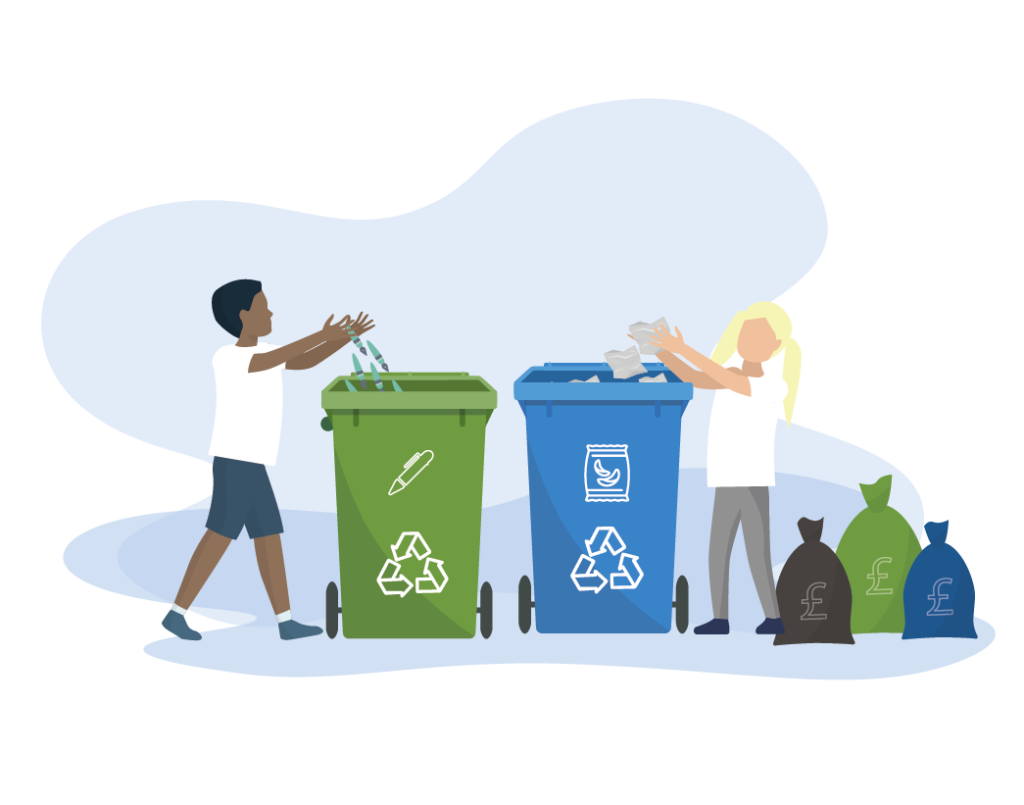How one eco-school is taking recycling to the next level.
Over the past four years, committed recycler Karen Hill has been on a mission to help spread the environmental message at Nields Junior, Infant and Nursery School in Huddersfield. It all started in 2018 when the Parent-Teacher Association (PTA) member wondered how many of the school’s used pens ended up in landfill. She started collecting them, and it turned out it was quite a lot. In partnership with BIC and TerraCycle, an assortment of pens was sent off to be recycled. In return, the school received approximately 1p per item.
“We’ve sent off over 10,000 pens since then,” she explained. “The children got involved with the programme right from the beginning. So when we did the pens, I sat down with the pupil council and said: ‘What else can you think of that we might be able to recycle?’ And the pupils said, ‘Well, what about crisp bags?’ It’s grown from their idea.”
Since the start, some 35,000 crisp packets have been saved from incineration. Children at the school have now gone on to collect other items such as bread bags, toothpaste tubes and toothbrushes, which TerraCycle turns into new products, including outdoor furniture, decking, and floor tiles. Another recycling company receives old phones, jewellery, coins and stamps, which are sold, with the school receiving 75% of sales. Meanwhile, ink cartridges are recycled through The Ink Bin and used school uniforms are sold to raise money for the PTA.
The latest initiative, however, is the most innovative to date. In March 2020, a wormery was introduced after the local council awarded the school a grant of just under £1000 to look into composting. Caddies have been installed in the classrooms, so children can discard their orange peel and apple cores after snack time. One person in each classroom empties the caddy into the wormery every day, where a tiger worm changes the waste into compost. Food from the kitchen is also disposed of in larger compost caddies.
The compost is then used in the school’s garden, where seeds, bulbs, fruit, and vegetables are cultivated. Hill commented: “It’s proper recycling. Last year we started growing potatoes, carrots, and beetroots and the school kitchen staff are quite happy to cook with the produce, so we end up with a bit of food in our meals as well.”
In recognition of the school’s commitment to the environment, it was awarded Eco-Schools accreditation last year.
Hill encourages other schools to start recycling too. Here’s how:
- Get the children involved from the start – ask the pupil council what it wants to recycle.
- Start small and establish a system that works. Then expand it as needs are identified.
- Get the whole school on board – the headteacher, teaching staff, catering staff and cleaners.
- Reinforce the message through teaching. Link to nature, climate change and the issues pupils are already aware of.
- Make it easy for people to get involved. Have separate, clearly labelled bins for each item that is being recycled.
- Celebrate children who are eco-champions, and thank people for taking part.
